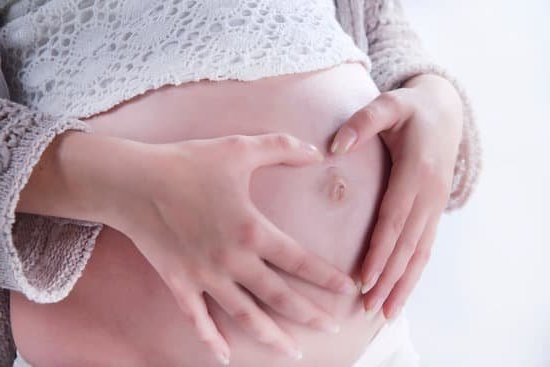Does Spotting Always Happen During Pregnancy?
Spotting is one of the most common pregnancy symptoms and can occur during any stage of a pregnancy. However, not all pregnant women experience it. Spotting is a light bleeding that may be seen in form of pink or brown discharge when a pregnant woman is expecting her period.
When is Spotting Considered Normal During Pregnancy?
Spotting is considered to be normal during the first weeks of pregnancy, as it can be a sign of implantation. When an egg is successfully fertilized and implants itself in the uterus wall, it is usually accompanied by a very light bleeding or brown discharge.
Sometimes, women experience a light pink spotting during the seventh or eighth week of their pregnancy. This happens when the placenta is starting to form and a small blood vessel ruptures.
Is Spotting Always Abnormal?
In most cases, spotting during pregnancy is perfectly normal and nothing to worry about. However, if the spotting is heavy, persistent, or accompanied by cramps, it is important to visit your doctor as soon as possible.
Heavy bleeding, with or without cramps, is a sign of a potential ectopic pregnancy, miscarriage, placenta previa, or infection. In some cases, it can be caused by a growth in the cervix that is bleeding. It is essential to consult with your doctor if you experience heavy bleeding during pregnancy.
Conclusion
It is important to remember that spotting during pregnancy can be perfectly normal, especially during the first trimester. Therefore, it is important to not worry or panic when you experience it. However, if the spotting is accompanied by cramps or other symptoms, it is essential to visit your doctor to rule out any complications.
It is important to be informed about the signs of a possible pregnancy complication, such as heavy bleeding and consult with your doctor if you experience any of the mentioned symptoms. Therefore, it is safe to say that spotting is not always a sign of pregnancy complications.
Special Note: It is important to remember that this article is not a medical advice, and it is always recommended to consult with your doctor if you have any questions or concerns about your own pregnancy. What is Spotting?
## Spotting During Pregnancy
Spotting is the light bleeding encountered during pregnancy. It usually occurs in early pregnancy, around the time of the expected period. It can range from brown stains on underwear to bright red blood. Spotting during pregnancy is common and could be caused by a variety of factors, such as implantation of the fertilized egg, a traumatic- or hormonal-related event during the early stages of pregnancy, or a miscarriage.
Here are some of the most common causes of spotting during pregnancy:
1. Implantation spotting: This occurs when the fertilized egg attaches itself to the lining of the uterus. This can cause a small amount of bleeding, usually described as light brown or pink in color.
2. Changes in vaginal pH: During pregnancy, there are increases in certain hormones that can alter the vaginal pH levels, which can lead to spotting.
3. Hormonal fluctuations: Changes in the body’s hormones can also trigger light bleeding.
4. Subchorionic bleeding: This type of spotting occurs when the placenta or some neighboring blood vessels detach from the uterine wall.
5. Sexually transmitted infections (STIs): STIs can be passed on to a baby during pregnancy.
## Is Spotting During Pregnancy Normal?
Though it is a common occurrence, it is important to remember that every woman is different and that not every experience is the same. However, studies have shown that light bleeding in early pregnancy is not considered an abnormal occurrence and does not necessarily indicate a problem.
The most important thing to do when you encounter spotting during pregnancy is to be sure to monitor it closely. Keep track of changes in your bleeding, such as the amount and the color, as well as any associated symptoms. In general, if the bleeding is light and you don’t experience any pain or cramping, it should be alright.
However, if you experience heavy bleeding or cramping in addition to the spotting, be sure to contact your healthcare provider immediately. Heavy bleeding or cramping accompanied by spotting can be signs of miscarriage, or a more serious complication, so it’s important to seek medical advice as soon as possible.
## When Should You See a Doctor?
You should always contact your healthcare provider if you experience any light, medium, or heavy bleeding during your pregnancy. Additionally, if the bleeding changes in amount or color, be sure to seek medical advice.
Most importantly, take note of any other symptoms you might be experiencing, such as cramping, fever, nausea, or pain. If you are experiencing any of these, call your doctor as soon as possible.
The most important action to take when faced with spotting during pregnancy is to always get expert medical advice. It is essential to get a professional opinion to ensure that your pregnancy is going as smoothly as possible.

Welcome to my fertility blog. This is a space where I will be sharing my experiences as I navigate through the world of fertility treatments, as well as provide information and resources about fertility and pregnancy.





